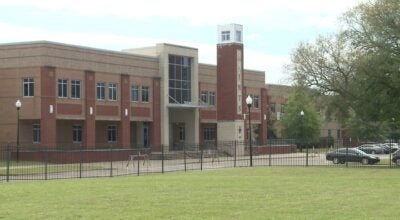Several issues, dates part of recent events
Published 6:24 pm Tuesday, June 24, 2014
I wrestle with this question of what to write about each week. The challenges, however, are not about having something to write about. Rather, the struggle involves which issue to write about. This week I could not decide on one, so I am exploring five issues briefly.
My dear wife, Faya, was very determined that we leave Selma for Father’s Day Weekend. She and I knew that, if we stayed in Selma, we would both end up working and/or struggling with various challenges. We had to get away.
We went to Montgomery, some 50 miles east of Selma. Getting away worked because I did not do any work Friday afternoon after 2:30, all day Saturday and on Sunday until the afternoon. Even then, I only worked for several hours. I did not even walk my usual 2 miles daily or call in on the two (2) radio programs. It took getting away on Father’s Day Weekend for me not to work.
Father’s Day is special and therefore should be celebrated. It is really difficult to be a father. I certainly fall short, but even in our falling short fathers should be celebrated. One person said that I set a really high standard for fatherhood but I know how far I miss the mark. Still, my wife, children, grandchildren and others celebrated me on Father’s Day and I am grateful.
Part of the movie Selma will be filmed this week. It is about the Voting Rights Struggle in Selma. Oprah Winfrey and Brad Pitt are helping produce the movie.
Though, I don’t know whether they will be in Selma. Many are seeking a part in the movie. I am not among the seekers.
However, I am involved in the situation because some land and buildings that Faya Rose and I purchased years ago for historical purposes are needed for the film. Also, we had given some land to the National Voting Rights Museum for a Voting Rights Park and that area is also involved.
I understand that Selma, will be released next year during the 50th Anniversary of the Selma Voting Rights Struggle which includes Bloody Sunday, the Selma to Montgomery March and the enactment of the 1965 Voting Rights Act. All of this just adds to the massive span of the 50th celebration next March. I am reminded that when we see a movie, we rarely appreciate the behind the scenes challenges that must be met.
Recently, I also went before the Alabama Pardon and Parole Board. I was on a mission. Sekou Cinque T. Kambui, aka William J. Turk, had served 40 years in prison for the conviction of two murders which he has consistently proclaimed his innocence. I knew William Turk personally in the early 1970’s. He was always trying to help those in need, lift the oppressed and protect the community. Many believe that he was framed by secret federal agents in the ongoing co-intelpro activities of the late sixties and early seventies. It has been well documented that many citizens were indeed framed.
In my appearance before the Pardon and Parole Board, I said Sekou was always helping people. He continued helping others the entire 40 years he has been in prison and he tried to improve himself in prison by taking courses and volunteering on projects. Even if he was paroled after 40 years, he would not be free. I also said all the killers of civil rights workers did not collectively serve 40 years. I emphasized the biblical significance of 40 years and said emphatically that 40 years was enough. I did not address Sekou’s innocence because ironically, that would have hurt his chances of parole.
I was deeply touched and deeply appreciative that the Board voted unanimously to parole Sekou to a halfway house after 40 years behind prison walls. It was a humbling experience.
I also made a two presentations. One presentation concerned the powerful impact of slavery on African Americans.
In the second, I presented on the parallels of the U. S. Supreme Court’s role in limiting Reconstruction efforts in the 1870’s and 80’s and the setbacks we are experiencing today. Some of us know about the Terrible Compromise of 1877 where Rutherford B. Hayes agreed to pull all federal troops out of the South in return for the Presidency.
However, we know little about the series of U. S. Supreme Court cases that limited the laws that Congress had passed to help the newly freed from slavery, i.e. the Slaughterhouse cases (1873); the Blyew case (1872); the Cruinkshanh case (1876); the Harris case (1883); the Reese case (1870) and the Civil Rights cases (1883).
The parallel case today is the Shelby County vs. Eric Holder case, where Supreme Court gutted the Section 5 Preclearance Provision of the 1965 Voting Rights Act. There are other cases but space does not permit exploration.
June 19 also was a celebration named Juneteenth, which marks of the end of slavery. I appeared on a radio program, Faya’s Fire, to discuss the issue. I also attended a Juneteenth Celebration.
We never know when the littlest thing we do will plant a seed that grows into trees providing shade and fruit to many.



